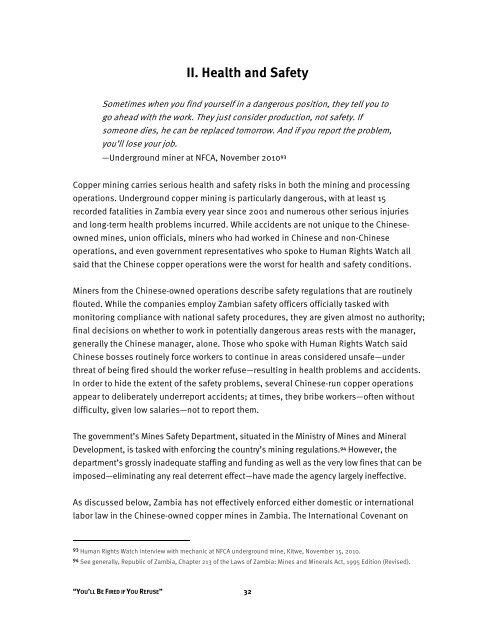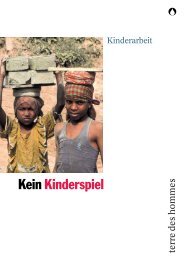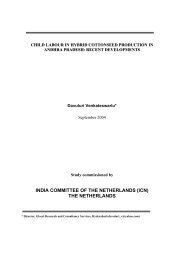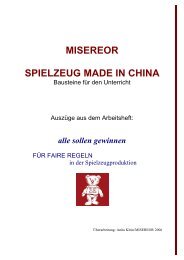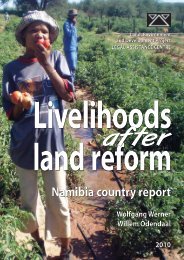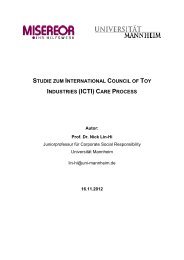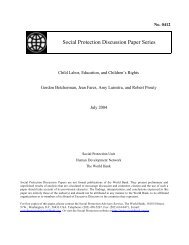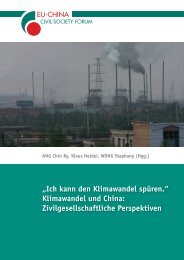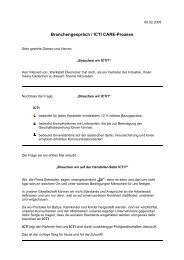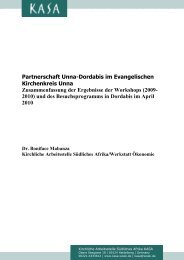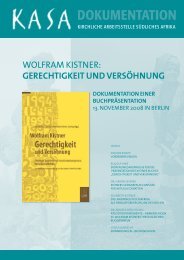“You'll Be Fired if You Refuse†- Human Rights Watch
“You'll Be Fired if You Refuse†- Human Rights Watch
“You'll Be Fired if You Refuse†- Human Rights Watch
You also want an ePaper? Increase the reach of your titles
YUMPU automatically turns print PDFs into web optimized ePapers that Google loves.
II. Health and Safety<br />
Sometimes when you find yourself in a dangerous position, they tell you to<br />
go ahead with the work. They just consider production, not safety. If<br />
someone dies, he can be replaced tomorrow. And <strong>if</strong> you report the problem,<br />
you’ll lose your job.<br />
—Underground miner at NFCA, November 2010 93<br />
Copper mining carries serious health and safety risks in both the mining and processing<br />
operations. Underground copper mining is particularly dangerous, with at least 15<br />
recorded fatalities in Zambia every year since 2001 and numerous other serious injuries<br />
and long-term health problems incurred. While accidents are not unique to the Chineseowned<br />
mines, union officials, miners who had worked in Chinese and non-Chinese<br />
operations, and even government representatives who spoke to <strong>Human</strong> <strong>Rights</strong> <strong>Watch</strong> all<br />
said that the Chinese copper operations were the worst for health and safety conditions.<br />
Miners from the Chinese-owned operations describe safety regulations that are routinely<br />
flouted. While the companies employ Zambian safety officers officially tasked with<br />
monitoring compliance with national safety procedures, they are given almost no authority;<br />
final decisions on whether to work in potentially dangerous areas rests with the manager,<br />
generally the Chinese manager, alone. Those who spoke with <strong>Human</strong> <strong>Rights</strong> <strong>Watch</strong> said<br />
Chinese bosses routinely force workers to continue in areas considered unsafe—under<br />
threat of being fired should the worker refuse—resulting in health problems and accidents.<br />
In order to hide the extent of the safety problems, several Chinese-run copper operations<br />
appear to deliberately underreport accidents; at times, they bribe workers—often without<br />
d<strong>if</strong>ficulty, given low salaries—not to report them.<br />
The government’s Mines Safety Department, situated in the Ministry of Mines and Mineral<br />
Development, is tasked with enforcing the country’s mining regulations. 94 However, the<br />
department’s grossly inadequate staffing and funding as well as the very low fines that can be<br />
imposed—eliminating any real deterrent effect—have made the agency largely ineffective.<br />
As discussed below, Zambia has not effectively enforced either domestic or international<br />
labor law in the Chinese-owned copper mines in Zambia. The International Covenant on<br />
93 <strong>Human</strong> <strong>Rights</strong> <strong>Watch</strong> interview with mechanic at NFCA underground mine, Kitwe, November 15, 2010.<br />
94 See generally, Republic of Zambia, Chapter 213 of the Laws of Zambia: Mines and Minerals Act, 1995 Edition (Revised).<br />
“YOU’LL BE FIRED IF YOU REFUSE” 32


